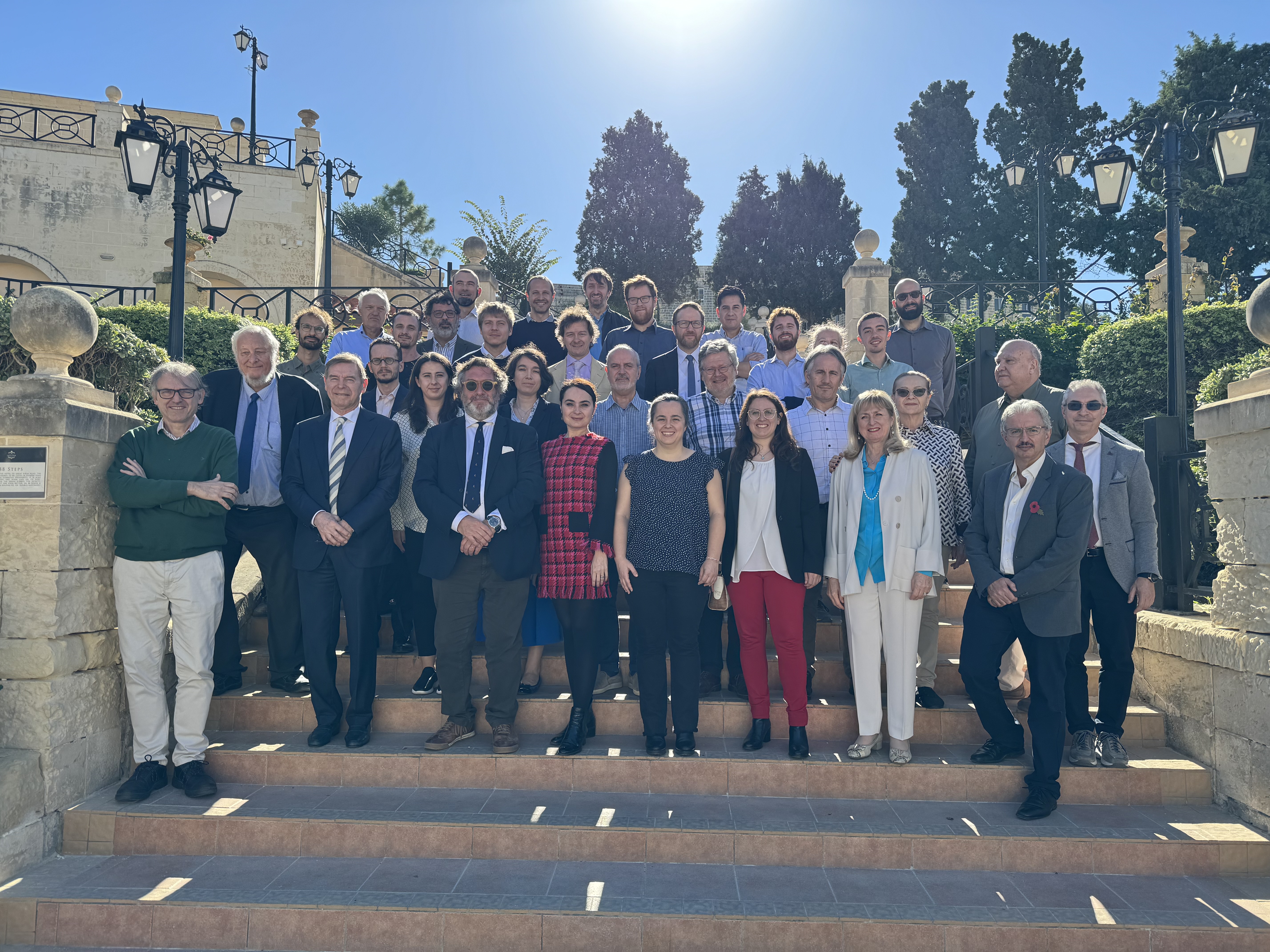
The final conference of Horizon 2020 GEO4CIVHIC project was held on November 15th, 2023, at Grand Hotel Excelsior in La Valletta (Malta). The project, started in April 2018 and coordinated by ISAC in the person of Adriana Bernardi, will end on November 30th, 2023.
GEO4CIVHIC (Most easy efficient and low cost geothermal systems for retrofitting civil and historical buildings, Grant Agreement n°792355) was aimed at research and development of innovative solutions devoted to shallow geothermal energy use in urban environment.
Project consortium was made of 19 partners from 10 European countries.
The project followed a holistic approach addressing every aspect related to geothermal systems.
In the first phase, constraints and barriers regarding the refurbishment of buildings and the application of shallow geothermal energy in urban contexts were analyzed. The most common barriers concerning the refurbishment of the historical buildings are the prohibition of installing solar panels as well as of the retrofit of the existing heating system, together with the narrow spaces typical in urban environment.
During the second phase, innovative technological solutions for each component of a geothermal system, such as drilling machines and equipment, Ground Source Heat Exchangers (GSHEs) and heat pumps, were developed.
A compact and versatile drilling machine capable of operating in narrow spaces has been developed. Additionally, drilling technologies has been designed in such a way to drill a wide range of undergrounds.
At the same time, GSHEs with enhanced thermal performance have been studied, with the purpose of extracting the same thermal power from the underground with a shorter length compared with state-of-the-art technologies. This aspect will allow to overcome space limitations in urban centres too.
Furthermore, different types of heat pumps have been developed in order to overcome the restrictions of the listed buildings and the limited spaces present in urban areas, as well as to reduce the refurbishment costs. Heat pump prototypes were designed in such a way to operate with high efficiency when coupled with both high and low temperature terminal units; such scenario occurs when the existing heating system (typically radiators) is kept unchanged either totally or partially. Moreover, a dual source heat pump prototype was developed to operate with both ground and air as thermal source. Such option can be valid where there is restriction of either space devoted to the geothermal field or budget for the installation of the GSHEs.
In parallel, a set of software tools was created in order to provide a holistic engineering solution to optimize installation and operation of shallow geothermal systems.
In the third phase, the technological solutions developed in the previous phase were installed and monitored in three pilot sites (including the CNR of Padua) and in four real sites with different urban contexts, climates and undergrounds. Furthermore, the project solutions were applied "virtually" in twelve buildings through energy simulations and feasibility studies.
Communication and dissemination activities were run in parallel over the other phases of the project. Among dissemination activities, it is worth mentioning the creation of Centers of Excellence in four European locations: the “European Center of Excellence (EcoE) for Shallow Geothermal Application in Civil and Historical Buildings”. The ECoE is hosted in the headquarters of the four partners of GEO4CIVHIC consortium which are members of the organization:
- University of Padova in Padua, Italy (Southern Europe ECoE);
- Romanian GeoExchange Society in Oradea, Romania (Eastern Europe ECoE);
- Friedrich-Alexander University in Erlangen, Germany (Northern Europe ECoE);
- Polytechnic University of Valencia in Valencia, Spain (Western Europe ECoE).
The ECoE will continue in providing high-level training to stakeholders involved in shallow geothermal energy, such as geologists, drillers, designers, researchers even after the end of the project. Additional information on EcoE is available at the following link: https://geo4civhic.eu/european-centers-of-excellence/
The project was extended by 20 months due to the Covid-19 pandemic and the related travel restrictions that strongly affected the demonstration phase of the project.
However, despite the issues due to the pandemic, the project was successfully accomplished. GEO4CIVHIC managed to open new perspectives for the application of geothermal energy in urban contexts. The demonstration phase confirmed the feasibility of the novel technological solutions: the monitoring of the demonstration sites showed high energy performance of the geothermal systems. Shallow geothermal energy can therefore be an effective solution for the decarbonization of civil and historical buildings even in challenging contexts such as urban centers.
GEO4CIVHIC project website: https://geo4civhic.eu/
GEO4CIVHIC project official movie: https://www.youtube.com/watch?v=kCgv6nYLCQQ
